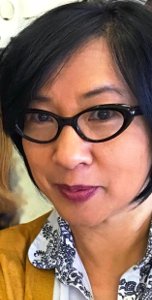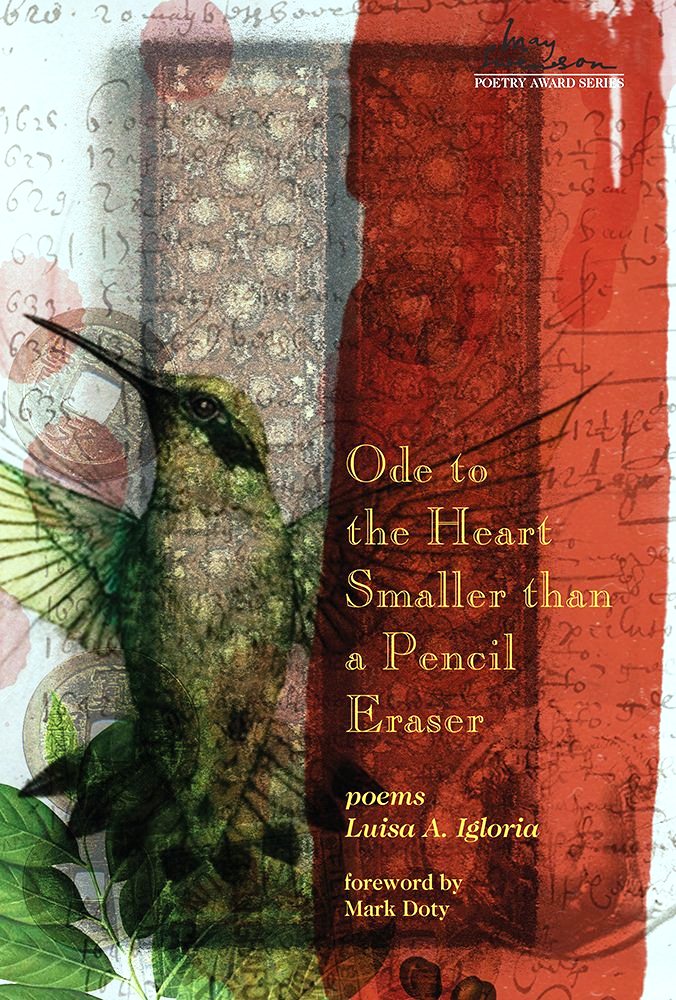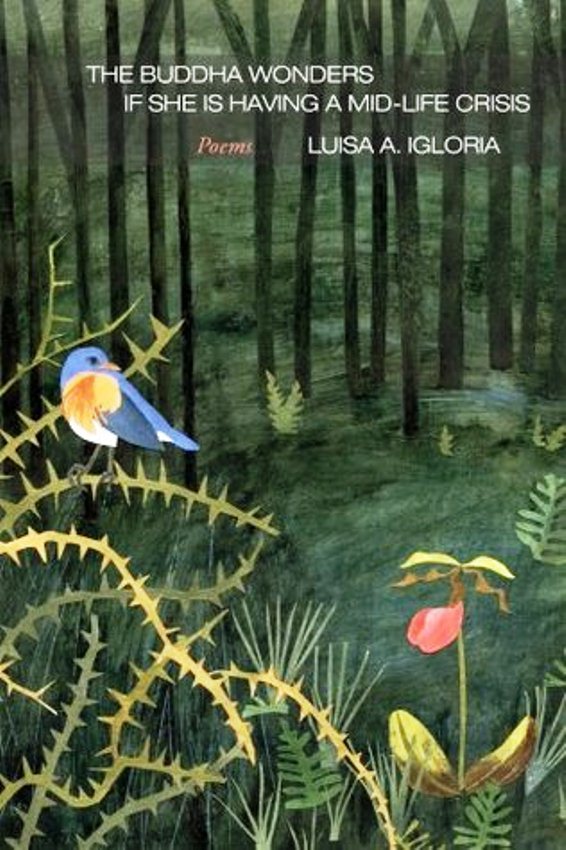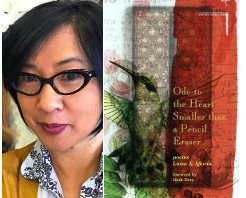
Luisa Aguilar Igloria, formerly of Baguio City, has just been named Poet Laureate of Virginia.
In May this year, she was informed by Henry Hart, immediate past Poet Laureate of Virginia and member of the board of the Poetry Society of Virginia, that her nomination for Poet Laureate had moved forward along with two other poets to the short list.
“Since that time, honestly,” Igloria, a professor of literature and creative writing at the Old Dominion University in Norfolk, Virginia, “I hadn’t thought about it much anymore because of all that constantly rivets our attention: COVID-19 news, Black Lives Matter and all the other changes we’ve been experiencing in our daily lives.”
She received the news late July 16. The press releases came out of Richmond, VA, Friday afternoon. She said, “I’m grateful. It’s such an honor to join the ranks of esteemed Virginia Poets Laureate, including Rita Dove, Claudia Emerson, my friend and colleague Tim Seibles, Ron Smith, Sofia Starnes and Hart.”
She added, “The Poetry Society of Virginia collects nominations statewide for the position. The names are narrowed down to a short list of three poets; it’s an honor to have been considered along with poets David Wojahn and Lisa Russ Spaar.”
The position of Poet Laureate is honorary (no compensation). The post was established in 1936. According to her, beginning in 1998, the state governor appointed a poet laureate from a list of nominees presented by the Poetry Society of Virginia. The Poet Laureate is supposed to “encourage the exchange of arts information and perspectives…(but) is not obligated to write any verse.”
Even when she was based in the Philippines, Igloria was one of the most prolific poets, coming out with a book of verses almost every other year. In the US where she has lived since 1998, she has produced, among others: Maps for Migrants and Ghosts, one of two co-winners of the 2019 Crab Orchard Open Poetry Competition (out of 680 submissions); Of Color: Poets’ Ways of Making ~ An Anthology of Transformative Poetics, edited by her and Amanda Galvan Huynh; What is Left of Wings, I Ask, a chapbook; The Buddha Wonders if She is Having a Mid-Life Crisis; Bright as Mirrors Left in the Grass; Ode to the Heart Smaller than a Pencil Eraser, selected by Mark Doty for the 2014 May Swenson Poetry Prize; Night Willow; The Saints of Streets, recipient of the 2014 Gintong Aklat Award; Juan Luna’s Revolver, winner of the 2009 Ernest Sandeen Prize.
Her US-published books are available at Mt. Cloud Bookshop on Yangco Street in Baguio. “I’m not sure about where else they might be available in the Philippines,” the poet said.

Poet Dave Bonta of www.vianegativa.us, wrote of Ode to the Heart Smaller Than a Pencil Eraser: “…Luisa’s poems are still an astonishment, virtuosic by-products of an intense daily (or nightly) grappling with language and memory that confounds the usual association between dailiness and ordinariness. Indeed, they are so rich, they must be savored slowly—often, I suspect, at less than half the speed at which they were originally composed. What a pleasure, then, to sit down at this feast of a collection, pulled together for our delectation by a master chef. Kain tayo!”
She would like to be remembered in her former hometown as “perhaps someone who both as a poet and person has been indelibly influenced by the character and history of this place.”
Besides reading and writing, Igloria enjoys book arts (hand-binding), drawing and painting, knitting, cooking and baking. “I miss being able to play the piano—I don’t have an instrument right now. I like tango music.” While studying for her Ph.D. at the University of Illinois in Chicago where she was a Fulbright fellow, she taught herself to roller-skate, something she wasn’t able to do in her childhood and youth in the skating rink of Burnham Park, Baguio.
Asked if as a woman of color, her latest award has a significance, she answered, “It’s significant as an indicator of important changes that are starting to manifest more forcefully in this country that have to do with the ongoing re-evaluation of history and the place that marginalized communities have been accorded in it. With Rita Dove, who was the first African American Poet Laureate of Virginia and of the US, Sofia Starnes, who is of Spanish and Filipino ancestry, Seibles, and now myself, there are now four poets of color who have been appointed to this distinguished position.”

She explained that these numbers parallel those in the history of the Poet Laureateship of the US.
There have been 23 US Poet Laureates since Richard Auslander was named the first Consultant in Poetry to the Library of Congress in 1937 (the position was re-named Poet Laureate Consultant in Poetry through an act of Congress in 1986). Of the 23 US Poets Laureate, only five are poets of color (Rita Dove 1993-95, first African American poet named to the position; Natasha Trethewey 2012-14, Juan Felipe Herrera 2015-17, Tracy K. Smith 2017-10, and the current US Poet Laureate Joy Harjo who is the first Native American Poet Laureate, 2019-present).
She has not had a chance to sit down and think about specific details of the VA Poet Laureateship. She considers it though “a unique position for service and engagement through poetry. I hope to have many conversations with others and to find meaningful ways to support and promote the voices of Virginian poets in particular and the work of poets and poetry in general as an important part of living in these times.”
Igloria is widely admired for her poem-a-day discipline which serves as draft for her long list of books produced. She said, “My daily (since November 20, 2010) poetry practice is something that I’ve come to regard as both a discipline (but never in the sense of mere duty or obligation) and as a pleasure and high point of each day. It’s a discipline more in the sense of a kind of devotional practice, maybe. I look forward to that part of the day (not rigidly scheduled) when I claim that window of time to sit down and write a poem). I think poetry is the place I prefer to go in order to think through and feel things more deeply, or in more quiet.”
To struggling poets and writers, she has these words: “Pay attention to the world. Don’t be afraid of feeling and thinking deeply.”
